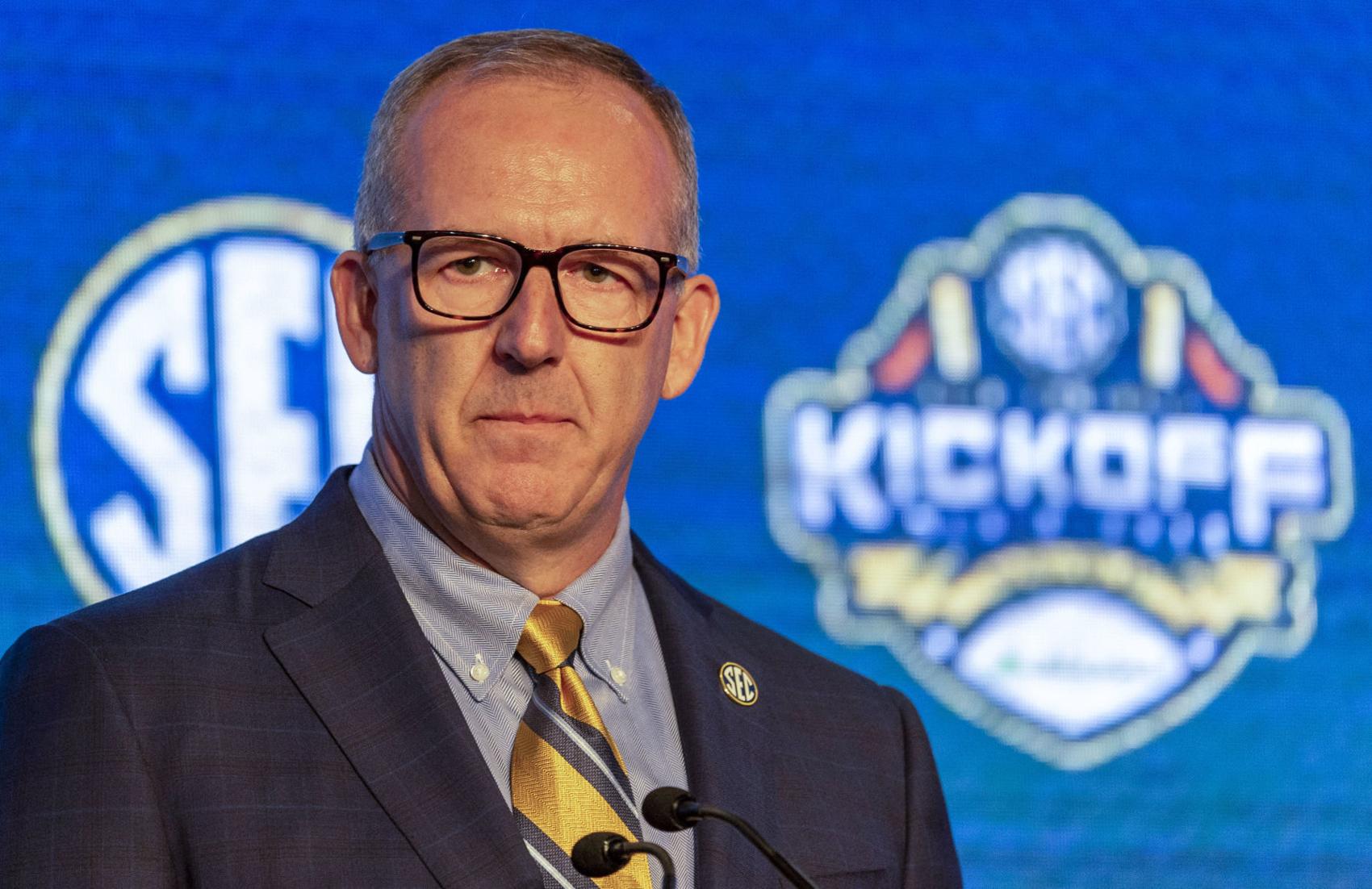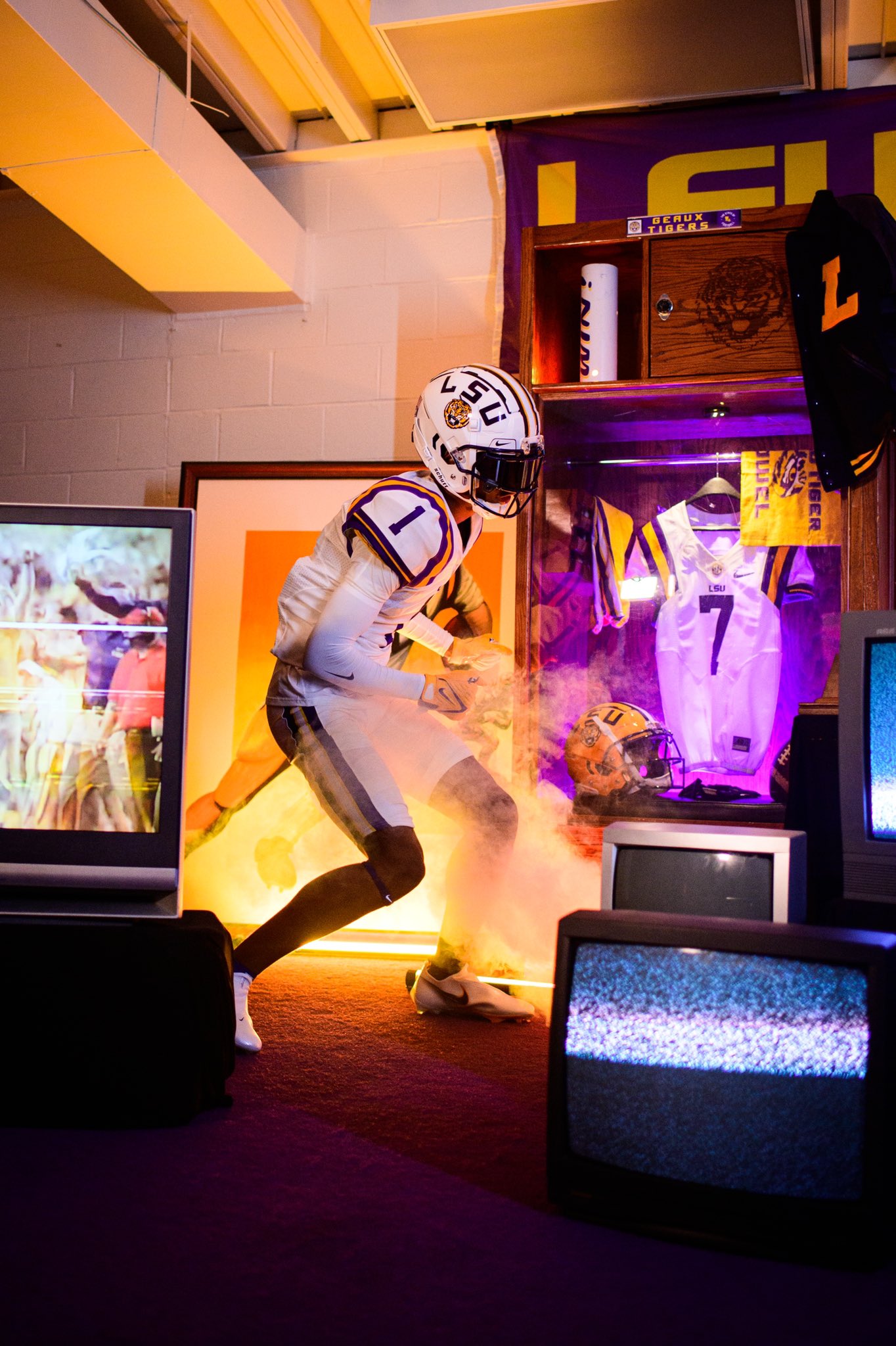
Mondays during the college football season in the Southeastern Conference in Birmingham usually are mostly reserved for fielding phone calls from some of the league’s 14 head football coaches unhappy about officiating in Saturday’s games.
The way this season has played out in the middle of a COVID-19 pandemic, with its twists and turns and weekly unpredictability of positive tests, contact tracing, quarantines and postponed games, SEC commissioner Greg Sankey and his staff such associate commissioner Herb Vincent are yearning for simpler times of coaches bellyaching about officiating.
Monday is now the first day after SEC football teams conduct COVID-19 tests three times a week on Sunday, Tuesday and Friday. Information is gathered from each school’s sports medicine staffs to determine if there’s enough of an outbreak to postpone games if one or both teams don’t have enough non-quarantined players available to play.
Like Monday when the league announced its eighth game postponement of the season, Saturday’s Ole Miss at Texas A&M matchup. It’s A&M’s second consecutive postponed game after skipping this past weekend’s Tennessee matchup because the Aggies had (and still have) too many players quarantined.
“It’s an all week thing but the Commissioner calls every Friday a `hold your breath’ moment,’” said Vincent, a former LSU sports information director and LSU graduate who has been one of Sankey’s and before him the late Mike Slive’s most efficient confidants since he re-joined the SEC staff in May 2013. “Everybody has tested Thursday. There’s teams about to get on airplanes. There are people preparing to host games. And there’s the potential a school can call and say, `We’ve got some players that popped positive.’ ”
The league has done its best to anticipate which schools have dwindling rosters because of COVID-19 outbreaks, but “sometimes it’s a surprise,” Vincent said.
This past weekend was a scheduling disaster for the SEC, which postponed four games including a CBS marquee matchup of Alabama at LSU that had the third round of the Masters as the telecast lead-in.
The Tigers’ case was typical of most of the postponed SEC games this year that has now directly affected 11 league teams.
“We have a small number of positive tests across our league in football,” Sankey said this past weekend. “Our overall positivity rate after nearly 80,000 tests is 0.005%. Just a few hundred total.
“The ripple effect is contact tracing. If we didn’t have to deal with contact tracing, which we do, it’s a public health expectation and requirement, we’d be playing football. It’s not simply about the spread or the positive test results. It’s about what’s happened around the virus.”
Added Vincent, “It’s the positive tests and the contact tracing that locks down a lot of players, can knock out an entire position unit and doesn’t let you play the games.”
If that position is previously depth-depleted, as is the LSU quarterback situation with starter Myles Brennan likely gone for the season with a torn abdomen muscle, it doesn’t take much to get to the point where the only non-quarantined LSU QB last week was true freshman TJ Finley.
In fact, QB depth was so non-existent in the Tigers’ practices last week after the Alabama game was postponed that 30-year-old punter Zach Von Rosenberg took QB snaps and even threw a touchdown pass.
Everybody else has passed for TDs on LSU’s secondary – 14 in LSU’s 2-3 season – so why not the former minor league baseball player turned punter?
The maddening point of LSU’s postponement is the COVID-19 positive tests were traced to a few players who attended a Halloween party. If that’s true and the party was indeed on Halloween which was the Saturday of LSU’s dead on arrival 48-11 loss at Auburn, it meant that the players attended the party late Saturday night after returning from Auburn.
Such absence of discipline and slap-in-the-face disrespect for Shelly Mullenix, LSU’s senior athletic director of health and wellness who has worked tirelessly along with many other training staff since mid-summer to assure a safe germ-free environment, is immature and selfish.
But it isn’t surprising for a team with wandering focus too reminiscent of a squad ready to exit stage right halfway through the 10-game schedule.
At each league school and in the SEC office, there’s a village of employees trying to get the conference’s 70-game season across the finish line.
It would have been nice to have a pandemic emergency manual already in place to follow policy and procedures. But the SEC, like the rest of the world, is learning on the fly as the months have passed since the NCAA shut down college sports from mid-March to early June.
From the very beginning, Sankey has been a calm force of reason among all of the commissioners of the Power 5 conferences. Every step the SEC has taken towards playing athletic seasons has been done slowly and gradually. He has always insisted that “the virus will tell us what to do.”
What he has learned is right when you think you might have it figured out, you really don’t, because the COVID-19 pandemic zigs and zags like a Heisman Trophy-quality running back.
Which means Sankey and the athletic directors around the league have had to be as flexible as Gumby to reschedule games.
A prime example is the SEC’s 10-game schedule with league games only being played. When the SEC adjusted its schedule to dump non-conference matchups and start the season on Sept. 26, it moved the conference championship game from Dec. 5 to Dec. 19 and built in Dec. 12 as a weekend to play any previously postponed games.
Mark Womack, the league’s executive associate commissioner and the conference office’s longest tenured employee, is tasked to re-schedule postponed games because scheduling is his forte. It’s a delicate dance of dealing with athletic directors and the SEC’s TV partners.
But now, there’s another problem. Too many postponed games.
“Everybody anticipated rescheduling games but it’s not always easy to do,” Vincent said. “Like right now, there’s no place on the schedule to put the LSU-Alabama game, the Missouri-Georgia game (and now the Ole Miss-Texas A&M game).”
Which is why Sankey persuaded the league’s athletic directors to use Dec. 19, the day of the SEC championship game, as an additional makeup date for teams not playing for the SEC title.
“My view is we need a finish line,” Sankey said. “Moving the finish line in any race is always difficult. My focus is on moving us to completion on Dec. 19. At some point, we’re going to have to land the airplane of the 2020 season.”
Just remember the pilot’s credo, Commish. Any landing you can walk away from is a good one.




Be the first to comment